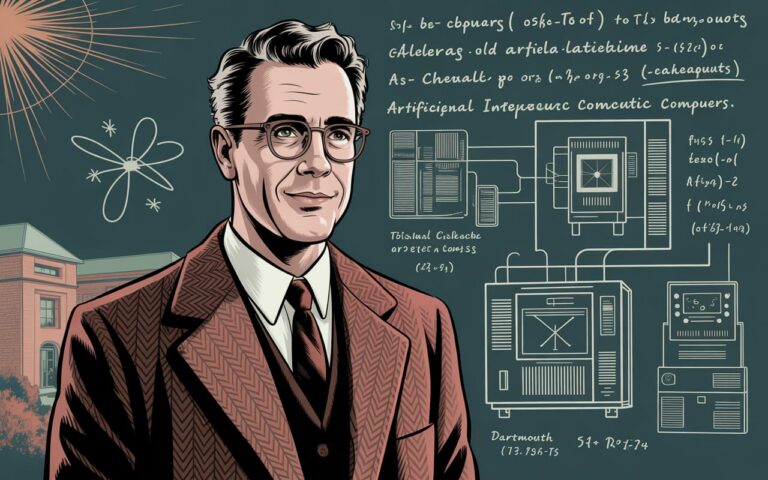The Genesis of a Field: Tracing the Term 'Artificial Intelligence'

Today, Artificial Intelligence (AI) permeates nearly every aspect of our lives, from personalized recommendations to self-driving cars. Its influence is undeniable, and discussions about its future are ubiquitous. But have you ever paused to consider where the term ‘Artificial Intelligence’ itself came from? While the concept of intelligent machines dates back centuries, the specific nomenclature that defines this revolutionary field has a precise origin, attributed to a visionary computer scientist and a pivotal summer conference.
John McCarthy: The Visionary Who Coined the Term
The term ‘Artificial Intelligence’ was officially coined in 1955 by John McCarthy. A brilliant mathematician and computer scientist, McCarthy proposed a summer research project on what he termed ‘Artificial Intelligence’ at Dartmouth College. He defined it as ‘the science and engineering of making intelligent machines,’ emphasizing the ambition to create machines capable of simulating human-like thought processes and problem-solving abilities.
McCarthy’s choice of ‘Artificial Intelligence’ was deliberate. He sought to create a distinct identity for this nascent field, differentiating it from existing disciplines like cybernetics or automata theory. He believed that the directness of the term would help articulate the specific goal of replicating human intelligence in machines, thereby attracting focused research and funding.
The Dartmouth Conference of 1956: The Birthplace of AI
McCarthy’s proposal culminated in the Dartmouth Summer Research Project on Artificial Intelligence, held in 1956 at Dartmouth College in Hanover, New Hampshire. This landmark event is widely regarded as the official birth of Artificial Intelligence as an academic discipline. Though the workshop’s attendance was sporadic, it brought together some of the brightest minds of the era, including Marvin Minsky, Nathaniel Rochester, and Claude Shannon, alongside McCarthy himself.
For ten weeks, these pioneering researchers explored the fundamental premise that ‘every aspect of learning or any other feature of intelligence can in principle be so precisely described that a machine can be made to simulate it.’ The conference laid out the core goals and challenges of AI, from symbolic reasoning and problem-solving to natural language processing and machine learning, setting the agenda for decades of research.
The Enduring Legacy of a Name
The coining of ‘Artificial Intelligence’ by John McCarthy and its introduction at the Dartmouth Conference was more than just an arbitrary naming convention; it was an act of definition. It provided a clear, concise, and aspirational label for a radically new area of scientific inquiry. This term, simple yet profound, encapsulated the ambitious goal of making machines think like humans, and it quickly became the standard nomenclature worldwide.
Without this foundational term and the collaborative spirit of the Dartmouth Conference, the field of AI might have fragmented or taken a different trajectory. Instead, it provided a rallying point for researchers, paving the way for the incredible advancements we witness today. From its humble origins as a term coined in 1955, ‘Artificial Intelligence’ has grown into a global phenomenon, continually pushing the boundaries of what machines can achieve.


